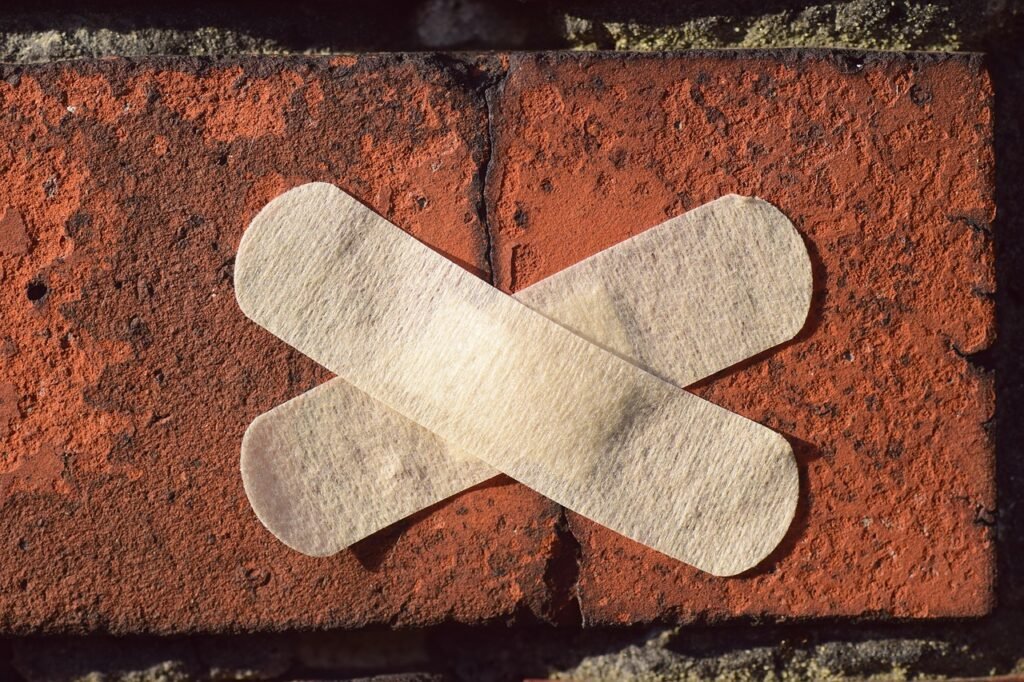Image by Leopictures from Pixabay
Wounds can heal faster with new ways to treat them. A wound care certification helps nurses learn these ways. It shows nurses how to care for wounds well. This makes patients feel better quickly. Many people around the world have chronic wounds. These are wounds that don’t heal easily. Nurses with this training can help a lot. They learn new skills and make patients’ lives better. This also helps nurses get better jobs. Let’s explore why this certification is important, how it works, and how it helps patients and nurses.
What is Wound Care Certification?
A wound care certification shows a nurse knows how to treat hard wounds. It teaches about healing wounds and stopping infections. It also covers ostomy care. An ostomy is a surgery that changes how the body gets rid of waste. The training helps with continence too. Continence means helping patients control their bladder or bowel.
Nurses with this certification help patients with serious wounds. They work in hospitals, homes, or special clinics. This certification is respected. It proves a nurse has strong skills. It takes time to learn, but it’s worth it. Nurses become experts in wound care. They help patients heal faster and feel less pain.
Why is Wound Ostomy Continence Certification Important?
Chronic wounds are a big problem. In the United States, about 2.5% of people have them. That means millions of people need help. These wounds can get worse without good care. They can get infected or take a long time to heal. This costs a lot of money for healthcare.
Nurses with wound care certification make a big difference. They learn the best ways to treat wounds. They help patients feel less pain. They stop infections from starting. They also help wounds heal faster. This training is important because it helps both patients and nurses. Patients get better care. Nurses become more skilled and respected.
This certification also saves time and money. When wounds heal faster, patients spend less time in hospitals. They feel better sooner. Nurses with this training are needed everywhere. Hospitals, clinics, and homes all want their help. This makes the certification very valuable.
Types of Wound Care Certification
There are different types of wound care certification. Each one teaches special skills. Nurses can choose the one that fits their goals. Some certifications focus on wounds. Others include ostomy or continence care. Let’s look at the main types.
1. Wound, Ostomy and Continence Nursing Certifications from WOCNCB
The Wound, Ostomy and Continence Nursing Certification Board (WOCNCB) offers trusted certifications. These meet high standards set by the ABSNC. This means they are very reliable. Nurses can pick from several options. Each one focuses on different skills.
The Certified Wound Care Nurse (CWCN) teaches how to treat all kinds of wounds. The Certified Foot Care Nurse (CFCN) focuses on foot wounds, like those from diabetes. The Certified Ostomy Care Nurse (COCN) helps patients with ostomies. The Certified Wound Ostomy Nurse (CWON) covers both wounds and ostomies. The Certified Continence Care Nurse (CCCN) helps with bladder and bowel issues.
These certifications are well-known. Nurses with these are respected in hospitals and clinics. They show a nurse is ready to handle tough cases.
2. Certifications from the American Board of Wound Management
The American Board of Wound Management (ABWM) offers certifications for many healthcare workers. These are not just for nurses. They are approved by the NCCA, which means they are high quality. There are a few options.
The Certified Wound Specialist Physician (CWSP) is for doctors who treat wounds. The Certified Wound Specialist (CWS) is for nurses and other health workers. The Certified Wound Care Associate (CWCA) is for people new to wound care. It’s great for those with less than three years of experience. It’s a good starting point.
These certifications help nurses show their skills. They also open doors to new jobs. Even beginners can start with the CWCA and grow from there.
3. Advanced Wound Care Certified (AWCC)
The National Alliance of Wound Care and Ostomy (NAWCO) offers the AWCC. This is an advanced certification. Nurses need other certifications first, like CWCN or CWS. They also need experience and extra training. This certification is for nurses who want to be top experts. It shows they know a lot about wound care. It takes hard work, but it’s a big achievement.
Career Opportunities After Certification
A wound care certification leads to many job options. Nurses can work in exciting roles. They help patients and earn good money. Let’s look at some jobs they can do.
Certified Wound Nurse
These nurses are experts in wounds. They treat pressure ulcers, which are sores from lying down too long. They also help with diabetic wounds and surgical wounds. They work in hospitals, clinics, or homes. Their job is to make sure wounds heal safely. They stop infections and help patients feel better.
Certified Wound Ostomy Continence Nurse
This is an advanced role. Nurses care for wounds, ostomies, and continence issues. They often lead teams in hospitals or clinics. They help patients live with comfort and dignity. This job needs a lot of skill, but it’s very rewarding.
Advanced Practitioners in Wound Care (e.g., Wound Care Nurse Practitioner)
These nurses have extra training. They can diagnose and treat wounds on their own. They can also prescribe medicine. They work in hospitals, clinics, or private offices. They are leaders in wound care. This role pays well and offers big opportunities.
Here’s how much these jobs might pay in the U.S.:
- Certified Wound Nurse: About $84,259 a year.
- Certified Wound Ostomy Continence Nurse: About $85,811 a year.
- Wound Care Nurse Practitioner: About $128,220 a year.
These salaries show how important this certification is. Nurses with this training can earn more. They also get better jobs and more respect.
Wound Care Certification: More Than Just a Career Step!
A wound care certification is more than a job boost. It’s about helping people. Nurses bring comfort and healing to patients. Chronic wounds can make life hard. They cause pain and stress. Certified nurses change this. They stop pain and help wounds heal. They also prevent infections, which keeps patients safe.
This certification helps nurses too. They learn new skills and gain respect. They can take on bigger roles in hospitals or clinics. Their work makes healthcare better. Patients heal faster and feel cared for. This makes nurses proud of their work.
Want to help people? Want to grow in your job? A wound care certification is the way to go. You can take an online course to start. These courses teach the latest tools and methods. They are easy to fit into your schedule. You’ll learn how to treat wounds, stop infections, and help patients feel better.
Start today! Sign up for a wound care certification course. Make a difference for patients. Build a better career. This certification is a big step forward for you and those you help.
Disclaimer
This article is for information only. It is not medical advice. Always talk to a healthcare professional for medical decisions. The details about wound care certification are general and may not include the latest updates. Check with official groups like WOCNCB, ABWM, or NAWCO for accurate certification information.

Jennifer Marshall is a friendly and talented journalist who loves telling stories. She is an expert in writing biographies that make people’s lives shine. With clear and simple words, Jennifer creates engaging stories that everyone can enjoy. With 9 years of experience, her passion for writing helps her connect with readers and share inspiring tales.
